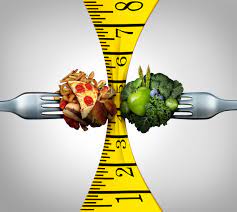Orthorexia Nervosa, an eating disorder that is characterized by an obsession with healthy eating, has been on the rise in recent years. If you or someone you know is suffering from orthorexia, it is important to seek treatment as soon as possible. In this blog post, we will discuss the different treatment methods for orthorexia and what to expect from each one. We hope that this information will help you or your loved one get the help they need!
Contents
What is Orthorexia?

Orthorexia is an eating disorder characterized by an obsessive focus on healthy food and extreme avoidance of anything perceived to be unhealthy. People with orthorexia often have a strong need to control their diet and may spend hours thinking about food and planning meals. They may also become preoccupied with the nutritional content of what they eat and the health benefits of certain foods.
People with orthorexia often start with good intentions, trying to eat healthy to improve their overall health. However, their preoccupation with healthy eating can become all-consuming and ultimately lead to unhealthy behaviors and weight loss. Orthorexia can also negatively impact social, work, and home life as people with the disorder may avoid eating out or going to parties where they cannot control their food choices.
Different Types of Orthorexia
There are many different types of orthorexia, each with its own unique set of symptoms and causes. Here are some of the most common types:
1. Anorexia Nervosa: This is the most well-known type of orthorexia, characterized by an extreme preoccupation with food and weight. Sufferers often restrict their diets to the point of starvation and may exercise excessively to burn off calories.
2. Bulimia Nervosa: This type of orthorexia is similar to anorexia nervosa, but sufferers also engage in binge eating followed by purging (via vomiting, laxative abuse, or over-exercising).
3. Orthorexia Nervosa: This is the less well-known form of orthorexia, but it shares many similarities with anorexia and bulimia nervosa. Like those disorders, sufferers have an obsessive preoccupation with food and weight. However, instead of restricting their diets or engaging in bingeing/purging behaviors, they rigorously adhere to a “healthy” diet that eliminates entire food groups (such as carbohydrates or fat) or requires the consumption of only certain “clean” or “pure” foods.
4. Bigorexia: This is a type of orthorexia that specifically affects men and is characterized by an obsessive need to bulk up and build muscle mass. Sufferers often spend hours at the gym working out and may take illegal steroids or other performance-enhancing drugs to achieve their desired physique.
5. Cheworexia: This is another type of orthorexia that specifically affects women and is characterized by an excessive preoccupation with healthy eating and oral hygiene. Sufferers may brush their teeth obsessively, avoid eating in public and only consume “safe” foods that they have prepared themselves.
6. Orthosomnia: This is a type of orthorexia that is characterized by an extreme preoccupation with sleep. Sufferers may have difficulty falling asleep or staying asleep, and they may spend hours worrying about how much sleep they are getting (or not getting). In severe cases, orthosomniacs may develop insomnia.
Treatment Methods of Orthorexia

Treating orthorexia is a very difficult task and there is no one-size-fits-all approach. The best course of treatment will vary from person to person, depending on the severity of the disorder and the individual’s unique needs. However, there are a few common treatment methods that are often used to help people with orthorexia recover.
Medications
One of the most common treatment methods that one can use to treat orthorexia is medication. This can be done by using antidepressants, antipsychotics, or mood stabilizers. These medications can help to regulate the chemicals in the brain that are responsible for the obsessions and compulsions associated with orthorexia.
Some of these medications that can help to treat orthorexia include:
Selective serotonin reuptake inhibitors (SSRIs): These are a type of antidepressant that can help to treat the obsessions and compulsions associated with orthorexia by increasing levels of serotonin in the brain. Examples of SSRIs include fluoxetine (Prozac), sertraline (Zoloft), and paroxetine (Paxil).
Tricyclic antidepressants (TCAs): These are another type of antidepressant that can help to treat the symptoms of orthorexia by reducing obsessions and compulsions. Examples of TCAs include imipramine (Tofranil) and nortriptyline (Pamelor).
Atypical antipsychotics: These are a type of medication that can help to treat the symptoms of orthorexia by reducing obsessions and compulsions. They may also help to improve mood and energy levels. Examples of atypical antipsychotics include olanzapine (Zyprexa), quetiapine (Seroquel), and risperidone (Risperdal).
Mood stabilizers: These are a type of medication that can help to treat the symptoms of orthorexia by reducing obsessions and compulsions. They may also help to stabilize mood. Examples of mood stabilizers include lithium carbonate (Eskalith, Lithobid) and valproic acid (Depakote).
Psychotherapy
Another common treatment method for orthorexia is psychotherapy, which can be done in either an individual or group setting. This type of therapy can help sufferers to understand their disorder and learn how to cope with their obsessions and compulsions healthily. Some of the most common types of psychotherapy used to treat orthorexia include:
Cognitive-Behavioral Therapy
Cognitive-behavioral therapy (CBT) is a type of psychotherapy that is often used to treat eating disorders. CBT focuses on helping patients change their negative thoughts and behaviors surrounding food and weight. It can be an effective treatment method for orthorexia, as it can help patients break the cycle of unhealthy thinking and behaviors.
Exposure Therapy
Another type of CBT that can be used to treat orthorexia is exposure therapy. This type of therapy involves gradually exposing the patient to the things they are afraid of (in this case, food, and weight) in a controlled setting. This can help patients to confront their fears and learn how to cope with them healthily.
Dialectical Behavior Therapy
Dialectical behavior therapy (DBT) is a type of psychotherapy that focuses on helping patients regulate their emotions. DBT can be an effective treatment method for orthorexia, as it can help patients healthily deal with their intense emotions.
Family-Based Treatment
Family-based treatment (FBT) is another type of psychotherapy that is sometimes used to treat orthorexia. FBT focuses on helping the family members of patients understand and support the patient’s recovery. This type of treatment can be very effective, as it can help to create a positive home environment that is supportive of recovery.
Nutritional Counseling

Nutritional counseling is another treatment method for orthorexia, as it can help patients develop a healthy relationship with food. Also, Nutritional counselors can help patients learn about nutrition and how to eat in a way that is healthy for both their minds and body.
Support Groups
Support groups can be a helpful treatment method for orthorexia, as they provide sufferers with a place to share their experiences and learn from others who are going through similar things. There are many different types of support groups available, such as online forums, in-person groups, and 12-step programs.
Self-Care
Sometimes, the best thing you can do for orthorexia is to focus on taking care of yourself. This means eating a balanced diet, getting enough exercise, and getting plenty of rest. It also means taking time for yourself to do things that make you happy and relaxed.
Some of this self-care can be:
• Eating a balanced diet: Eating a healthy diet is important for both your physical and mental well-being. Make sure to eat a variety of nutritious foods, and avoid restrictive diets.
• Getting enough exercise: Exercise can help to improve your mood and energy levels. It’s important to find an exercise routine that you enjoy and stick with it.
• Getting plenty of rest: A good night’s sleep is essential for your health. Make sure to get at least eight hours of sleep every night.
• Taking time for yourself: It’s important to take time for yourself to do things that make you happy. This could include reading, taking a bath, or spending time with friends and family.
Pros and Cons of Orthorexia Treatment

When it comes to orthorexia treatment, there are both pros and cons that need to be considered. On the plus side, orthorexia treatment can help an individual become more aware of their eating habits and make changes to those habits. This could improve their overall health. Additionally, orthorexia treatment can also help an individual become more mindful of what they are eating and why they are eating it. This can lead to a greater sense of control over one’s food choices.
Sometimes these benefits also come with a few drawbacks, however. For instance, some people may find that the structure of orthorexia treatment means they have to give up more control over their food choices than they would like. Additionally, orthorexia treatment can be time-consuming and expensive, which may not be feasible for everyone.
Only you can decide if orthorexia treatment is right for you. If you are considering this type of treatment, it’s important to speak with your doctor or a mental health professional to get more information and make sure it’s the best decision for you.
Conclusion
There are a few different methods of treatment for orthorexia, and the most effective one will vary from person to person. If you think you might be suffering from orthorexia, it’s important to seek professional help so that you can get on the road to recovery. With the right treatment, you can start enjoying food again without letting your relationship with it control your life.
Do you think you might have orthorexia? Have you tried any of the treatments mentioned above? contact us and tell us more.
Hope this article was of help to you! If you are suffering from mental health disorders, you may seek help from Therapy Mantra. We have a team of highly trained and experienced therapists who can provide you with the tools and skills necessary for overcoming mental health disorders. Contact us today to schedule an online therapy or download our free Android or iOS app for more information.


